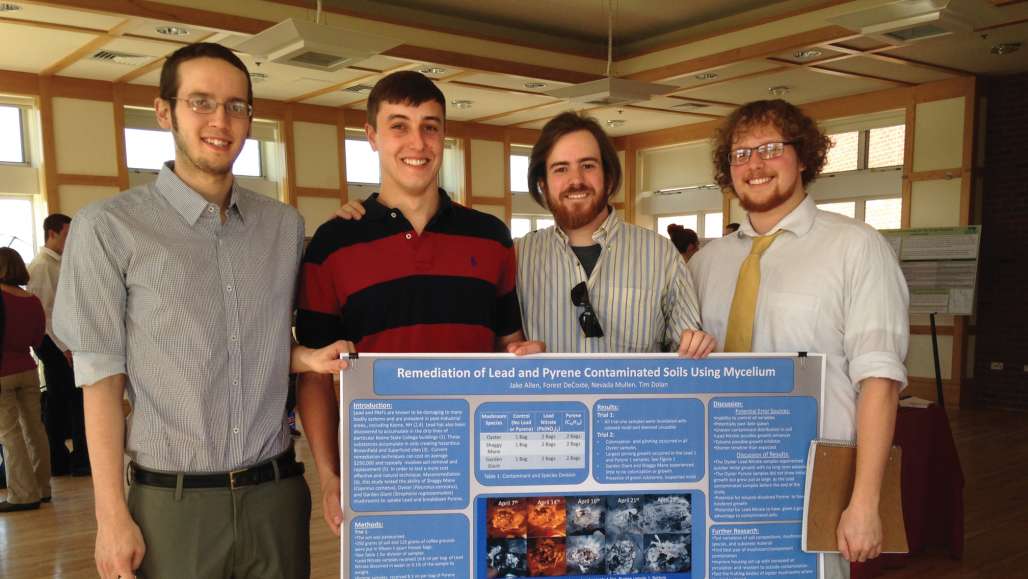Can Mushrooms Save Earth?

It’s entirely possible. Last year, four Keene State seniors, now brand-new alumni, undertook a study to see how effectively mushrooms can be used to clean up contaminated soil. Scientists have long studied the ways certain fungi can absorb heavy metal contaminants, so when Jacob Allen, Forest DeCoste, Nevada Mullen, and Timothy Dolan teamed up for their capstone environmental studies seminar, they wanted to see how well it worked in action.
“The idea came from all of the brownfields that we’ve found around Keene that are really polluted and unwanted,” says DeCoste, referring to unused lots contaminated by hazardous substances, typically from earlier industrial uses.
The group initially hoped to clean up such a lot by planting it with mushrooms, but had to scale back their project when they learned how much red tape would be involved. But they could still look at the efficacy of decontaminating soil with mushrooms – a more natural and considerably less costly prospect than digging it up and hauling it off.
To do that, they teamed up with two chemistry students and created their own contaminated soil by adding lead nitrate and pyrene, two chemicals commonly found in industrial brownfields. “Keene being a post-industrial area, there are prevalent amounts of those chemicals,” says Dolan. They planted three varieties of mushrooms – Oyster, Garden Giant, and Shaggy Mane – in the contaminated soil and, for control purposes, in clean soil. The chemistry students analyzed the soil before, during, and after the mushroom growth period.
The results? For the most part, the Garden Giant and Shaggy Mane varieties didn’t take to the soil. But the Oyster mushrooms did – and they were effective at taking up lead and breaking down pyrene in the soil. “We are very hopeful for future research on this subject,” the students wrote in a paper on the research project.
And that could bring meaningful change to places like Keene. “The overarching goal for us was community improvement,” notes DeCoste. “The idea sprouted from the desire to help towns like Keene become better places. Alternative bioremediation methods can open up new development possibilities for areas with industrial backgrounds.”

